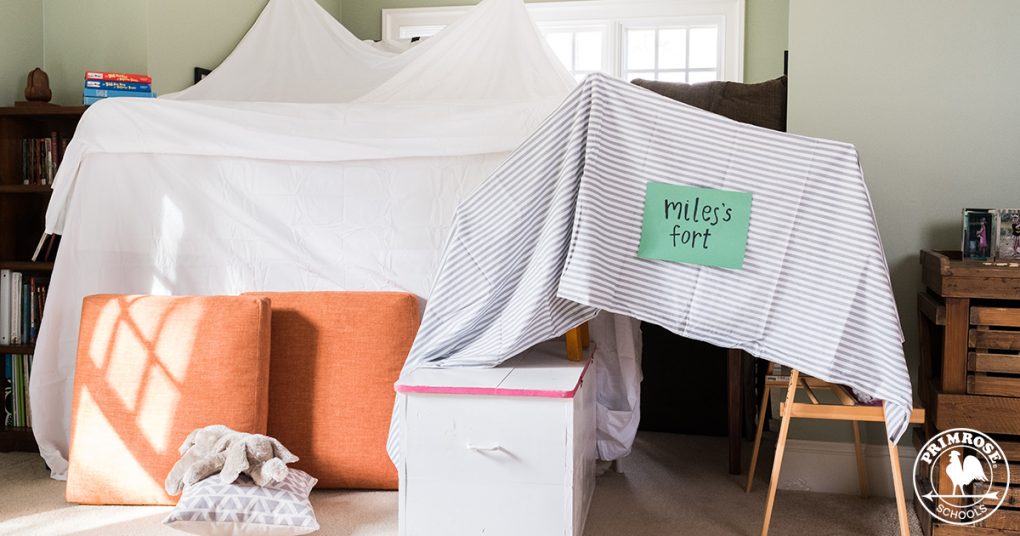Security, Comfort, Safety - Forts for Children
"I feel like you're in a safe place your own bubble of cosiness."
"There are no other things affecting you -- you're blocked out from the world. Everything is wrong right now, but it's a safe space where no one worries about you."
"If you lock yourself in your room, people would worry, but if you hide in your fort all day, no worries."
Grayson Drewry, 22, Port Townsend, Washington
"Kids make sense of the world through play. In quarantine, all our needs are amplified."
"Everything is different. They're facing uncertainty -- not knowing how long we're going to be doing this."
"They're feeling what we're all feeling -- great loss."
"Whatever kids create in their imaginative world feels safe and predictable to them. It's like 'Every time I go into this fort, it will be just like I left it'."
"Don't mess with their fort. Let them go to town on making it feel safe and comfortable. It's theirs."
Emily King, child psychologist, Raleigh, North Carolina

"It's primal. [Our brains react with] self therapy."In Forest Hill, Maryland, six-year-old Nacelle Bumford has several forts, including a tent near her mother's work spot she has named her "office". "We use them as her safe place", her mother explains. Inside the forts Nacelle gets two minutes of "cuddle time", an aid to normalcy and comfort for both mother and child. "She calls me into her 'office' for meetings that we both schedule on her calendar. It makes her feel in control of her day", said Linette Bumford.
"It's all aout safety and control. We seek out comfort. We need to restore order. And in COVID, we're doing more of these things."
Carol Stock Kranowitz, educator, author
David Sobel, professor emeritus at Antioch University's department of education, author of Children's Special Places: Exploring the Role of Forts, Dens and Bush Houses in Middle Childhood, explains that forts have always been important in childhood. He has done research across cultures on the developmental function that forts assume in children's lives, and he concluded they are universal, driven by "biological genetic disposition" as children develop a "sense of self", separate from parents.
According to Dr.Sobel, children initiate fort-building indoors about at age four, and then begin venturing to the outside two to three years on, to construct dens, treehouses and fort-like structures independently. Building forts reflect children's emotional growth as individuals as they create a "home away from home", away from parental control. "A lot of magic happens inside [a fort, fostering creativity", he explains.
 |
For Grayson Drewry, a school assignment to take part in a fort-building competition, gave meaning to her life during a time of confusion. Her mother describes Grayson's seeking comfort in "nests" and forts when stressed. She transformed her bedroom in pastel-pink, building a tent made with sheets and pillows centrally propped by a mop, then decorated it with photographs, and spent most of her day inside. "I needed that!", she said to her mother.
Dr. Sobel pointed out that children now have more time to be creative as their developing brains need a break from computer time, so forts encourage play, beneficial for children, more acutely at the present time. Familiar routines suddenly disrupted, children have a need to feel in control of something, said Emily King. Therapeutic in nature for children, being in an enclosed dark space, sound buffered, the space creating separation from everything surrounding it, children on the autistic spectrum or with attention-deficit disorder can find it soothing.

Labels: Children, Comfort, COVID, Disruption, Forts, Routine

0 Comments:
Post a Comment
<< Home